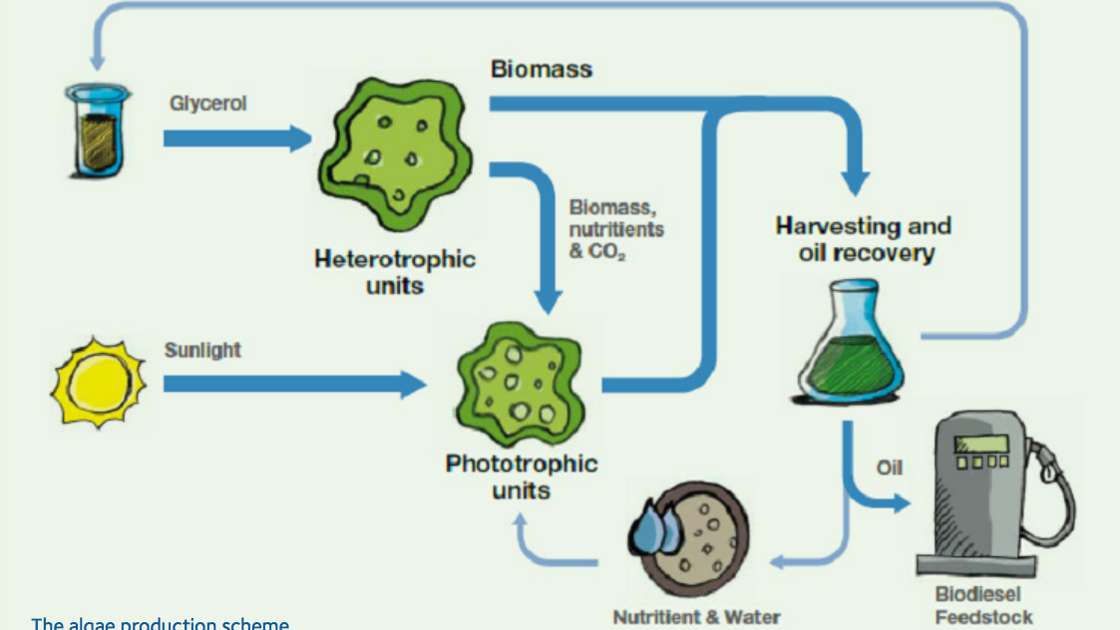
Developing Sustainable Approach to Algae-based Biofuels
20 Aug 2015
The overall objective of InteSusAl is to demonstrate an integrated approach to generating biofuels in a sustainable manner on an industrial scale. The project will optimise the product of algae by both Heterotrophic and Phototrophic routes and will demonstrate integration of these production technologies (raceways, photobioreactors and fermentation) to achieve the algae cultivation targets of 90 to 120 dry tonnes per hectare per annum.
The heterotrophic fermentation systems are expected to arrive in Portugal by the end of August 2015 where they will be installed and integrated into the phototrophic systems being constructed on a 1 hectare site owned by Necton. The CPI team have spent several months commissioning and testing the individual components of the fermentation systems to ensure they operate within an sterility envelope. The challenge has been to build a system that will maintain its sterility and then run free from contamination for a period of time. The team have modified the vessels and component parts to achieve this and the system is now operating in continuous mode, free from contamination after 14 days. This is a huge success for CPI’s technical role in the project and unlocks the next phase of the work package: trials to define how the three technologies can be combined to give attractive algae yields alongside a mitigated carbon impact.
InteSusAl results will be able to significantly contribute to increased security of energy supply for European transport needs and greater penetration of Renewable Energy Resources (RES), reducing therefore, EU’s Greenhouse Gas (GHG) emissions.
The InteSusAl consortium consists of six partners coming from four European countries, whose complementary expertise have enabled the successful delivery of the projects. The Royal Netherlands Institute for Sea Research (NIOZ, NL) provides expertise in algae strain selection and growth.
The Wageningen UR Food and Biobase Research (DLO-FBR, NL), is developing harvesting techniques to minimise energy usage and additives such that the majority of the water can be recycled. The National Renewable Energy Centre (NAREC, UK) is carrying out the LCA to compare the sustainability of this approach to the other Algae cluster projects as well as to fossil fuels. Dissemination and exploitation of results are being led by the European Renewable Energy Research Centres Agency (EUREC, BE). Necton, PL is located in the Algarve and provide expertise in fresh water and marine algae cultivation.

The heterotrophic fermentation systems are expected to arrive in Portugal by the end of August 2015 where they will be installed and integrated into the phototrophic systems being constructed on a 1 hectare site owned by Necton. The CPI team have spent several months commissioning and testing the individual components of the fermentation systems to ensure they operate within an sterility envelope. The challenge has been to build a system that will maintain its sterility and then run free from contamination for a period of time. The team have modified the vessels and component parts to achieve this and the system is now operating in continuous mode, free from contamination after 14 days. This is a huge success for CPI’s technical role in the project and unlocks the next phase of the work package: trials to define how the three technologies can be combined to give attractive algae yields alongside a mitigated carbon impact.
InteSusAl results will be able to significantly contribute to increased security of energy supply for European transport needs and greater penetration of Renewable Energy Resources (RES), reducing therefore, EU’s Greenhouse Gas (GHG) emissions.
The InteSusAl consortium consists of six partners coming from four European countries, whose complementary expertise have enabled the successful delivery of the projects. The Royal Netherlands Institute for Sea Research (NIOZ, NL) provides expertise in algae strain selection and growth.
The Wageningen UR Food and Biobase Research (DLO-FBR, NL), is developing harvesting techniques to minimise energy usage and additives such that the majority of the water can be recycled. The National Renewable Energy Centre (NAREC, UK) is carrying out the LCA to compare the sustainability of this approach to the other Algae cluster projects as well as to fossil fuels. Dissemination and exploitation of results are being led by the European Renewable Energy Research Centres Agency (EUREC, BE). Necton, PL is located in the Algarve and provide expertise in fresh water and marine algae cultivation.
Let’s innovate together
To find out more about how we can work together, please enter your details below.